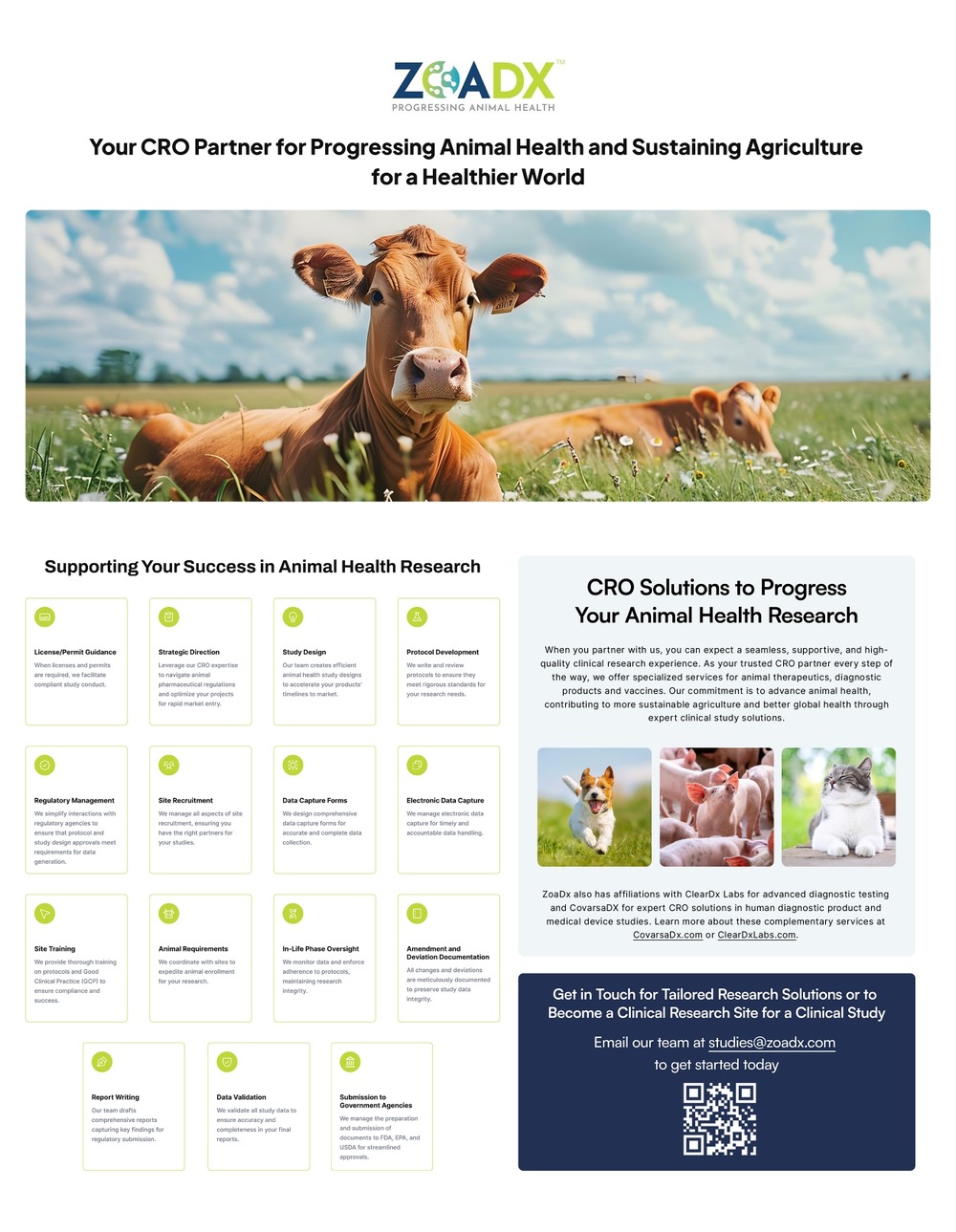Imagine investing years into developing a groundbreaking veterinary treatment, only to have it stall in regulatory limbo due to poor study design or unreliable data. This is where Good Clinical Practice (GCP) comes in—providing the ethical and scientific framework that ensures veterinary clinical research is both rigorous and trustworthy.
While many associate GCP with human drug trials, its role in veterinary clinical research is just as vital, ensuring ethical treatment, reliable data, and a streamlined regulatory path for new veterinary products.
What is Good Clinical Practice in Veterinary Research?
At its core, GCP in animal research drives integrity, quality, and ethics in veterinary clinical trials. These internationally recognized guidelines uphold scientific rigor in studies while prioritizing data consistency and veterinary product safety.
Failing to adhere to GCP can lead to unreliable data, non-compliance with regulations, and, potentially, unusable research results, delaying market entry for veterinary products. It’s a nightmare scenario if you’ve poured time and resources into an innovative product, only to have it stalled before it can make a real-world impact.
Key Principles of Good Clinical Practice in Veterinary Clinical Trials
Ethical Considerations: Putting Animal Welfare First
The ethical treatment of animals is not just a regulatory requirement, it’s the foundation of responsible veterinary research. GCP guidelines mandate that clinical trials minimize pain and distress, provide proper veterinary care, and maintain humane treatment throughout the study.
Consider a scenario where a veterinary drug trial failed to implement proper pain management protocols. Without adequate oversight, test animals experienced unnecessary distress, leading regulatory authorities to question the study’s validity. Such missteps can result in regulatory rejection, financial losses, and reputational damage for the sponsoring company.
Study Design and Conduct: The Blueprint for Success
A well-designed veterinary clinical trial is one that is clear, reproducible, and compliant with regulatory requirements. GCP ensures that clinical research protocols are well-documented, study endpoints are clearly defined, and all trial procedures are executed consistently.
A rushed protocol design that doesn’t adhere to GCP standards is an avoidable pitfall with serious consequences. Without proper controls and consistent data collection, regulatory authorities may challenge the study’s validity, leading to costly, time-consuming trial repetitions and unnecessary delays in market approval.
Data Integrity: The Backbone of Regulatory Success
Beyond the study’s results, regulatory bodies closely examine how clinical trial data is collected, recorded, and monitored to uphold accuracy and compliance. Adhering to GCP guidelines helps maintain data credibility, verifiability, and resistance to manipulation.
Without solid documentation, including timestamps, complete records, and consistent reporting, even the most promising veterinary product can face regulatory scrutiny and approval delays. Compliance with GCP data standards is key to a smooth regulatory pathway.
Adverse Event Reporting: No Room for Oversight
Veterinary products must be evaluated not only for effectiveness but also for safety. GCP compliance requires thorough documentation of any adverse events animals experience during a study.
Inadequate monitoring of adverse events during clinical trials can have serious consequences. If overlooked issues emerge post-market, they may lead to recalls, financial loss, and damage to a company’s credibility. GCP-compliant reporting certifies potential safety concerns are identified and addressed early, reducing these risks.
The Impact of Good Clinical Practice on Veterinary Research
1. Enhanced Data Quality
With GCP, clinical research data is standardized, reproducible, and accepted by regulatory authorities. This reduces the risk of costly rework and accelerates product approvals.
2. Prioritizing Animal Welfare
Most of us are in this field because we love animals and recognize their vital role in a healthier world. Ethical research practices build trust—not only with regulatory agencies but also with veterinarians, pet owners, and livestock producers. When animals are treated with care and respect, the research yields better-quality data and strengthens our ethical reputation, reinforcing the positive impact we strive to make.
3. Smoother Regulatory Pathway
Regulatory compliance isn’t just about checking boxes—it’s about making sure veterinary products are safe, effective, and truly ready for the market. When clinical research follows GCP standards, it meets the highest level of quality, making approvals smoother and helping bring new products to market faster.
Veterinary Good Clinical Practice Best Practices: Leading the Way in Clinical Research
We understand that the stakes are high in veterinary clinical research and the process can be complex.
By choosing ZoaDx, sponsors gain more than just a research team—they gain a strategic partner committed to conducting high-quality, data-driven, and ethically sound studies. With a focus on strong study design, reliable data, and animal welfare, ZoaDx brings expertise and integrity to every clinical trial.
Adherence to GCP is not just a regulatory requirement. It is a commitment to excellence.
Let’s talk about how we can help bring your veterinary product to market—ethically, efficiently, and successfully.


